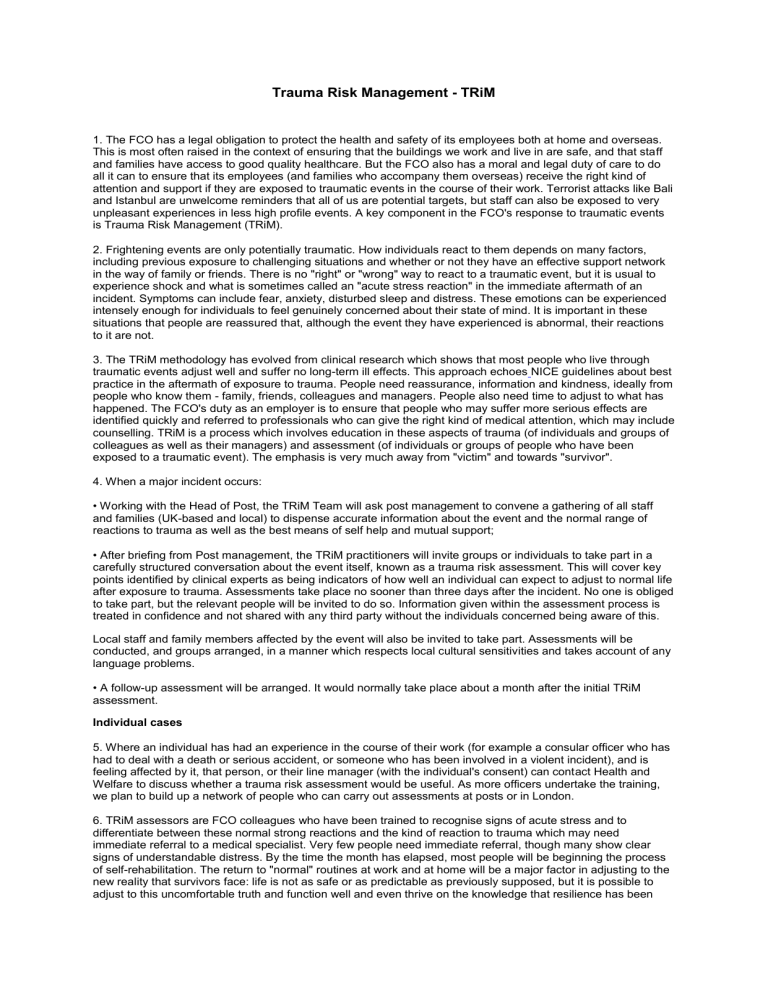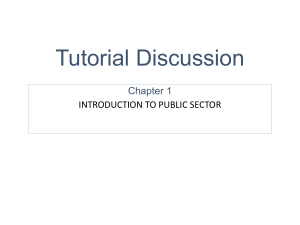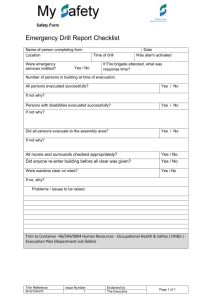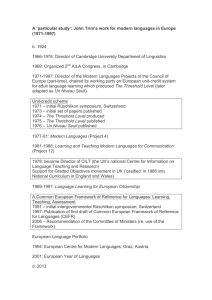
Trauma Risk Management - TRiM 1. The FCO has a legal obligation to protect the health and safety of its employees both at home and overseas. This is most often raised in the context of ensuring that the buildings we work and live in are safe, and that staff and families have access to good quality healthcare. But the FCO also has a moral and legal duty of care to do all it can to ensure that its employees (and families who accompany them overseas) receive the right kind of attention and support if they are exposed to traumatic events in the course of their work. Terrorist attacks like Bali and Istanbul are unwelcome reminders that all of us are potential targets, but staff can also be exposed to very unpleasant experiences in less high profile events. A key component in the FCO's response to traumatic events is Trauma Risk Management (TRiM). 2. Frightening events are only potentially traumatic. How individuals react to them depends on many factors, including previous exposure to challenging situations and whether or not they have an effective support network in the way of family or friends. There is no "right" or "wrong" way to react to a traumatic event, but it is usual to experience shock and what is sometimes called an "acute stress reaction" in the immediate aftermath of an incident. Symptoms can include fear, anxiety, disturbed sleep and distress. These emotions can be experienced intensely enough for individuals to feel genuinely concerned about their state of mind. It is important in these situations that people are reassured that, although the event they have experienced is abnormal, their reactions to it are not. 3. The TRiM methodology has evolved from clinical research which shows that most people who live through traumatic events adjust well and suffer no long-term ill effects. This approach echoes NICE guidelines about best practice in the aftermath of exposure to trauma. People need reassurance, information and kindness, ideally from people who know them - family, friends, colleagues and managers. People also need time to adjust to what has happened. The FCO's duty as an employer is to ensure that people who may suffer more serious effects are identified quickly and referred to professionals who can give the right kind of medical attention, which may include counselling. TRiM is a process which involves education in these aspects of trauma (of individuals and groups of colleagues as well as their managers) and assessment (of individuals or groups of people who have been exposed to a traumatic event). The emphasis is very much away from "victim" and towards "survivor". 4. When a major incident occurs: • Working with the Head of Post, the TRiM Team will ask post management to convene a gathering of all staff and families (UK-based and local) to dispense accurate information about the event and the normal range of reactions to trauma as well as the best means of self help and mutual support; • After briefing from Post management, the TRiM practitioners will invite groups or individuals to take part in a carefully structured conversation about the event itself, known as a trauma risk assessment. This will cover key points identified by clinical experts as being indicators of how well an individual can expect to adjust to normal life after exposure to trauma. Assessments take place no sooner than three days after the incident. No one is obliged to take part, but the relevant people will be invited to do so. Information given within the assessment process is treated in confidence and not shared with any third party without the individuals concerned being aware of this. Local staff and family members affected by the event will also be invited to take part. Assessments will be conducted, and groups arranged, in a manner which respects local cultural sensitivities and takes account of any language problems. • A follow-up assessment will be arranged. It would normally take place about a month after the initial TRiM assessment. Individual cases 5. Where an individual has had an experience in the course of their work (for example a consular officer who has had to deal with a death or serious accident, or someone who has been involved in a violent incident), and is feeling affected by it, that person, or their line manager (with the individual's consent) can contact Health and Welfare to discuss whether a trauma risk assessment would be useful. As more officers undertake the training, we plan to build up a network of people who can carry out assessments at posts or in London. 6. TRiM assessors are FCO colleagues who have been trained to recognise signs of acute stress and to differentiate between these normal strong reactions and the kind of reaction to trauma which may need immediate referral to a medical specialist. Very few people need immediate referral, though many show clear signs of understandable distress. By the time the month has elapsed, most people will be beginning the process of self-rehabilitation. The return to "normal" routines at work and at home will be a major factor in adjusting to the new reality that survivors face: life is not as safe or as predictable as previously supposed, but it is possible to adjust to this uncomfortable truth and function well and even thrive on the knowledge that resilience has been tested to the hilt. TRiM assessors will remain in contact with individuals to offer moral support and advice for as long as people want this. 7. The people identified by the TRiM process as in need of some extra professional help, will receive this as a priority. This could be medical intervention, or psychological support in the form of specialist counselling. Costs will be covered even where they fall outside the normal provisions of the relevant healthcare scheme. 8. Colleagues who are interested in undergoing training to become TRiM assessors are welcome to put their names forward for five day courses, run with external trainers within the FCO. Applications from all grades should be in the form of a written outline of why an individual wants to undergo the training and what personal qualities they believe they can bring to the TRiM process in the FCO. Please send these to Health and Welfare.




